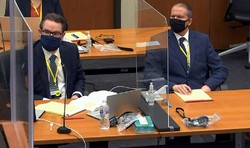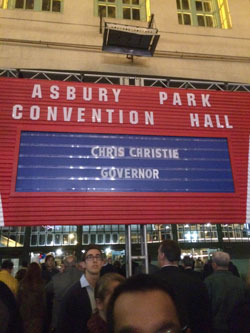An apparent fake, leaked polling memo that was intended to spin polling results in favor of Democratic Presidential nominee, Hillary Clinton, surfaced in the media late last month from the Monmouth Polling Institute— and left the polling institute members answering angry social media users.
On Sept. 21, a website called Real True News published a story claiming that a leaked Monmouth polling memo surfaced that urged the poll to change the narrative of the election. The website claimed that the accomplished pollster from fivethirtyeight.com, Nate Silver, had sent the memo. However, the name on the memo was blacked out.
The story came out shortly after the polling institute released its latest numbers, showing Clinton regaining momentum in Florida and criticizing them because they had published two polls that favored Donald Trump the week before.
The mysterious memo was in email form and read to Patrick Murray, Director of the Polling Institute, and had the subject titled, “Change the Narrative.” The memo instructed the polling institute to poll populations that would be more favorable to Clinton. It said, “we prefer polling areas of high unemployment for minority response and “more are available to take calls during working hours and far, far fewer of them support Republican candidates.” “We also need to greatly oversample women.” At one point the email emphasized, “this week the news cycle MUST show Hillary regaining the lead in Florida.”
These are just samples of the statements made in the leaked document that can be found at Scribd.com, a digital library subscription service. The memo was met with scrutiny. Monmouth University graduate and Assistant Campaign Manager for the Pennsylvania Republican Party, Tyler Vandegrift, said, “If it’s true then it’s a disgrace and there needs to be action. He is potentially sacrificing the academic reputation of my Alma Mater in favor of partisan politics. People need to have faith in polls.”
There were angry responses on Twitter as well. A Washington Post article, written by David Weigel, captured the back and forth. One tweet read, “I knew that Monmouth poll was garbage. If this is real, it basically confirms everything we have been saying about fake polls and collusion.”
The Monmouth poll responded via their Twitter account. “For the record, the purported Monmouth University poll memo being circulated is a photoshopped fake – and not a very good one at that.”
Murray said, “a fake memo popped up out of thin air.” He suggested that the memo was photoshopped by a Trump supporter and said, “every time Trump is down, we get nasty comments.” He added, “I’ve received comments where people told me they wished I was dead.”
Dr. Jennifer McGovern, an assistant professor of sociology, said, “I think people tend to doubt polls for a number of reasons and one of those reasons is a lack of understanding of how scientific polling is conducted.” She also mentioned “confirmation bias” as an issue. She said, “People tend to stick to their own worldview and it takes a lot of evidence to overturn someone’s views. Sometimes people will see evidence that contradicts their views and interpret it in a way that supports their views- this happens especially in politics.”
She said of the controversy, “So take ‘Misunderstanding of Polls’ + ‘Confirmation Bias’ and then throw in a third element that has been a theme of this election ‘Distrust of Authority/Institutions.’ When you mix those together, I could totally see how an incident like this happens.”
Dr. Stephen Chapman, an assistant professor of political science and University Director of the Masters Public Policy Program, said, “When polling outlets become more popular and regularly used throughout media outlets to discuss election outcomes, it will undoubtedly bring out interested parties who would like to disparage the source to change the narrative.” He said, “Patrick Murray has done an excellent job at building the MU Polling Institute to what it is today. This obviously faked leak was an attempt to tarnish the reputation of the Polling Institute in order for both media outlets and the masses to place less emphasis on their findings.”
Chapman continued, “Since this story broke, multiple polls have found similar results to that of our institute, reinforcing both the accuracy of the Polling Institutes methodology and the ridiculous nature of the faked ‘leak.’”



